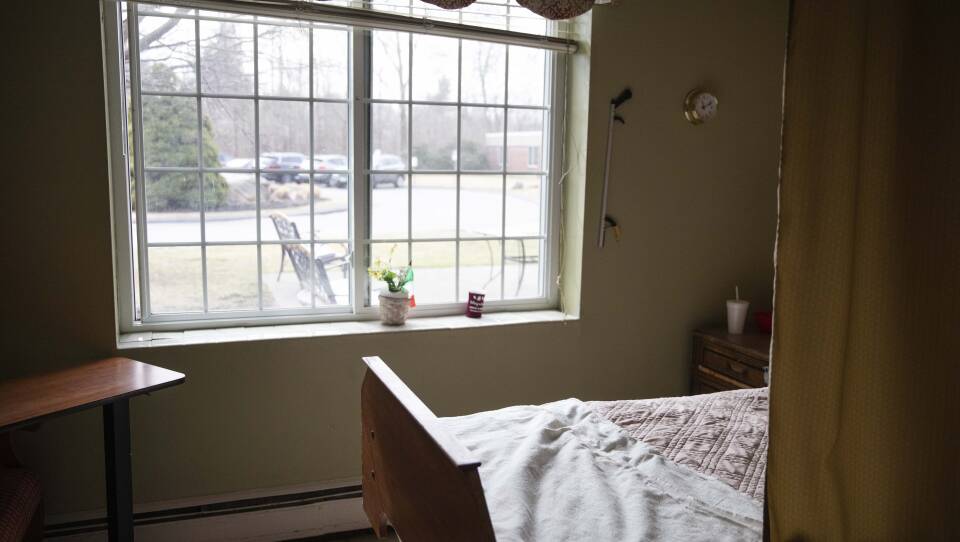The coronavirus pandemic has disproportionately affected vulnerable communities in Massachusetts, including residents in assisted living facilities and nursing homes. WGBH Morning Edition host Joe Mathieu spoke with Northeastern University law professor and WGBH News legal analyst Daniel Medwed to learn more about the federal and state laws in place meant to protect residents in these homes, and the complicated process of bringing claims of carelessness and neglect. The transcript below has been edited for clarity.
Joe Mathieu: Which agency is responsible, Daniel, for overseeing nursing homes in the state?
Daniel Medwed: Well, there are multiple layers of oversight at both the federal and state levels. The federal government has jurisdiction over any nursing home that receives Medicaid or Medicare funding. In addition, Massachusetts has a very elaborate statewide regulatory framework that has essentially three prongs.
First, the Department of Public Health licenses these homes with the level of licensure varying depending on the intensity of the care provided by the institution. Second, the attorney general's office plays a role. They have their own set of regulations that are designed to supplement the major state consumer protection statute and safeguard against unfair and deceptive trade practices in the industry. And finally, there's a law on the books known as Chapter 111, Section 70E that has carefully delineated a set of patient and resident rights that are potentially enforceable in courts of law.
Mathieu: So there's a lot there you just put out. Let's focus on state regulations. Assuming a family member is concerned about the quality of care in a nursing home — they're fearful the facility is not taking adequate precautions to guard against the spread — what legal options, if any, do they have?
Medwed: Well, for one thing, the Department of Public Health has a pretty clear procedure for fielding and investigating claims of abuse, mistreatment or neglect, and one could make the argument that having inadequate safeguards in a long-term care facility is a form of neglect. That's defined in the regulations as "failure to provide goods and services necessary to avoid physical harm, mental anguish or mental illness."
Now, this failure doesn't have to be intentional. It doesn't have to be intentional on the part of the Nursing Home Administration. It could just be the product of carelessness. So I could imagine a claim arising under that provision even though, of course, the Department of Public Health would take into account the unique strains and pressures on nursing homes. Another option is to consider the statute I mentioned a moment ago — Chapter 111, Section 70E — and file a claim that's designed to enforce a patient or resident's rights.
Mathieu: You just mentioned Massachusetts laws relating to patients' rights, Daniel. What are they and how do they tie into the current crisis?
Medwed: Many of the rights that are set forth in that statute relate to confidentiality, privacy and access to information about your care. But you also have a right to have all reasonable requests responded to promptly and adequately within the capacity of the facility. So I can imagine a scenario where a resident asks for greater social distancing or more personal protective equipment, and the facility is unable to respond promptly or adequately. That could give rise to a potential claim.
Mathieu: You're right. There's a lot here. What's the procedure, Daniel, for making a claim that one of your rights has been violated under this law? Do you just go to court [and] file a lawsuit, or is there more?
Medwed: Well, it's slightly complicated. This statute envisions, among other things, a very particular procedure that's often used in the medical malpractise setting, which is you first have to present your claim to a special screening tribunal that's composed of a judge, a lawyer and a doctor. If that tribunal — upon hearing some of your preliminary evidence — thinks there is a legitimate claim of liability, then you can just go to court. But if the tribunal discounts your claim [and] doesn't think it's legitimate, you still get to go to court, but you first have to post a $6,000 bond, which you would forfeit and it would go to the nursing home in the event you do go to court and ultimately lose. In addition, you could just do some regular remedies in court, but that's a very specific procedure.





